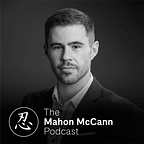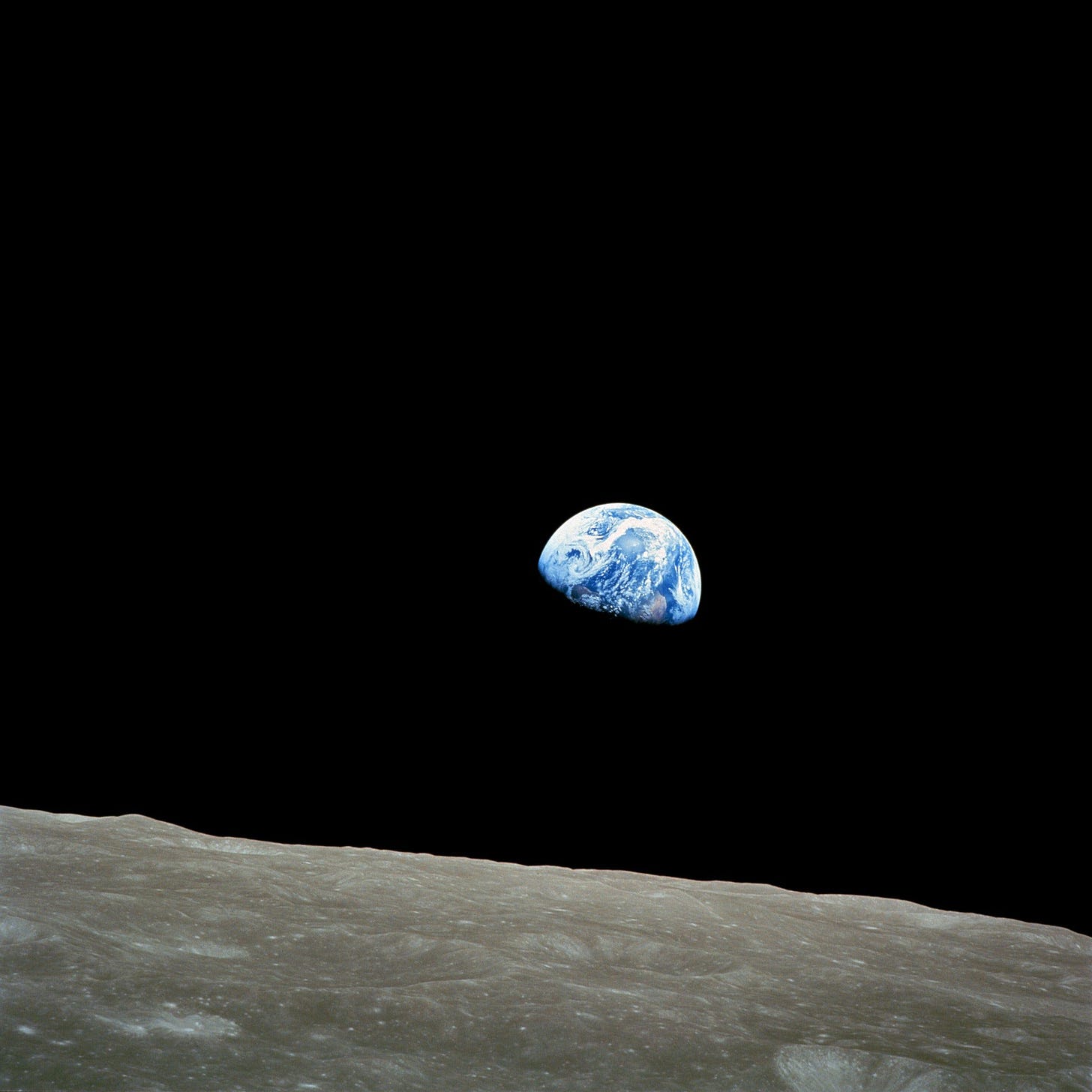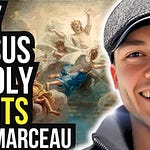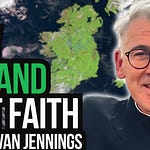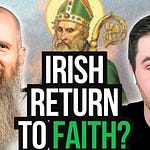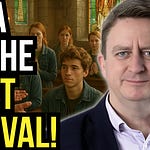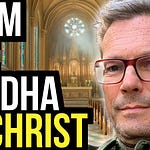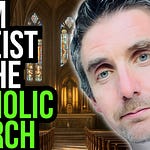The fourth dimension of meaning in life is not reported in the psychological literature but was added by Cognitive Scientist John Veraveke, and this dimension is called ‘depth’. He describes depth as the felt sense of being connected to ‘what is most real’. Depth is a part of the normative order like significance, which we discussed in the previous essay, which is in addition to our lives feeling valuable, important, and worthwhile, we need to feel our lives are connected to something that is actually real.
Vervaeke argues there is a core human meta-drive to reality, which he calls ‘Onto-normativity’, onto meaning ‘reality’ and normativity relating to what we ought to do. He argues this drive is more important to us than subjective well-being! He uses the example of being in a relationship: would you want to know if your partner is cheating on you? Most people would say ‘yes’, even though learning this truth would radically reduce their subjective well-being. So in this essay we will be reflecting on current conflict in reality, some recent developments in thought on reality, and finally how these developments can help us align meaning and reality-seeking.
The Modern Reality Conflict
“How totally different did the world appear to medieval man! For him, the earth was eternally fixed and at rest in the centre of the universe…Men were all children of God under the loving care of the Most High, who prepared them for eternal blessedness; and all knew exactly what they should do and how they should conduct themselves in order to rise from a corruptible world to an incorruptible and joyous existence. Such a life no longer seems real to us, even in our dreams.”
― C.G. Jung, Modern Man in Search of a Soul
Jung here is pointing out why mediaeval people didn’t suffer from a meaning crisis despite living much more difficult lives than we do these days. Their worldview, pre-Copernican revolution, placed them at the centre of the universe1 They knew how to act, why they were valuable, and were connected to what was most real (God). The mythos in which they lived provided a meaningful structure within which they could live meaningful lives despite the tragedy of their suffering and torment.
The scientific revolution created a vastly different picture of reality. The discovery of the heliocentric universe indicated that we are not the centre of the universe; in fact, we appear to be some infinitesimal small corner of a material, clock-work, universe, infinitely expanding and started with an impersonal big bang and what is most real is dead matter, like soil at the bottom of reality. We cannot explain our consciousness, how we should act (ethics) and why we would have value as such a small part of a big universe? The scientific materialistic paradigm is basically a complete inversion of the mediaeval religious worldview and, in the history of human thought, is without precedence.
In the twenty-first century we live in the wake of this scientific revolution, and to try and return to a deeply meaningful mediaeval religious worldview is, at best, naive and, at worst, complete self-deception. So we are stuck between this rock and a hard place: what is true is essentially meaningless, and what is meaningful is essentially false? Our modern epistemology and ontology have caught us on the horns of a dilemma, truth and nihilism? Or illusion and meaning? But could materialism be wrong about reality? Is there an alternative perspective that affords us both truth and meaning in life? A best of both worlds, so to speak? And that is what we will be exploring in this essay…
Squaring The Circle
The problem that has split Philosophy for four hundred years is dualism, the object-subject divide, and hence the problem of perception. The materialist worldview presupposes a naive realism in human perception, that there is a mind-independent world of objects out there and that we record this world like a video camera. The alternative to this position is a naive idealism, that there is nothing really out there in the world but the projected ideas of the mind. Our perception is really how we touch and grasp what is real, and so it has deep philosophical implications. In this section, I’ll be arguing for an in-between stance - there is something out there, a reality, that our mind interacts with, but the question of whether the world is simply dead matter, or what matters? Is what we will be addressing.
The method of empirical science presupposes that our minds are of such a substance that reality is intelligible to us; thus, through observation, experiment, and repeatability, we are capable of coming to the truth. However, this connection between mind and reality, which affords intelligibility, cannot be proven by the scientific method because the scientific method presupposes it. It’s like how you can’t have an experiment to prove the validity of experiments; because the validity of experiments is presupposed in every experiment. The same is true for an argument; you cannot argue for the intelligibility of reality because every argument presupposes that reality is intelligible; otherwise, if reality was not intelligible to us, no argument could ever be shown to be true or false. The entirety of human knowledge and the possibility of truth rests on this first correspondence between mind and reality, and now, this first presupposition is being questioned from within science itself…
Donald Hoffman, Cognitive scientist, wrote a book called “The Case Against Reality: How Evolution Hid the Truth from Our Eyes”. He should have rephrased this as the case against naive realism, as the case against reality can be misinterpreted into a matrix-like simulation theory. But his argument is a derivative of Alvin Platinga’s evolutionary argument against naturalism, which is essentially that if we are evolved animals, our perceptual systems evolved for survival and reproduction not an accurate representation of the nature of objective reality. Hoffman claims to have proved this is the case mathematically, that the odds we evolved for perceiving objective reality are nearly zero. His argument is in good company with the burgeoning counter-enlightenment online. If we don’t simply perceive material objects as they are, then reality is going to be more complicated than materialist or physicalist accounts. Of course we know this from Quantum Physics, that ultimately Newtonian physics is going to be wrong, but what does this mean for individual perception?
Enter Jordan Peterson. In the first line of his first book, Maps of Meaning, Peterson addressed this exact problem:
“The world can be validly construed as a forum for action, or as a place of things.” MOP, Peterson.
He argued, evolutionarily, that human beings exist in the world as a forum for action, in other words, we live in a world of ‘what matters’, not matter. He argues that our perceptual and action systems are set up for survival and reproduction, not objective reality. He gives the example of a cliff, which is perceived as a ‘falling-off place’ before it is considered as an igneous rock formation eroded by the sea and wind aka a cliff. The advanced, technical, scientific interpretation of the cliff came much later, and is a limit case of our grasping the cliff as a falling off place that threatens our survival. Peterson argues that human beings live in this highly functional imaginary schema but that reality is not equivalent to the functional conceptual model we make of it, and that this mistake is like confusing the map for the terrain.
He argues our successful adaptation proves that we understand the reality in which we are in. In this case, there is a mind-independent reality, but we know this reality by conforming our being to the environment, within and without, in action, not simply naming and categorising the world. The current scientific model inappropriately prioritises the later of categorising and naming things as truth. But in this expanded model of truth, Peterson brings back myths, rituals, and religion because these are all means of successful human adaptation to the changing environment. He argues our successful adaptation to the environment constitutes an embodied truth: if we were simply deluded, we would be less successful at adaptation, like a person crossing a busy motorway while blindfolded is likely to be less successful.
Dr Iain McGilchrist, who I recently had on the podcast, makes a convergent argument with Peterson and Vervaeke based on brain hemispheric differences. Mcgilchrist argues that the two hemispheres are two fundamentally different types of attention and that that attention meets the world out there, but it’s a two-way relationship. He argues how we attend creates the world around us, and provides an example of a mountain near his home on the Isle of Skye in Scotland. This mountain was, in mythology, a home of the gods; but then for sailors, it was an indication of a difficult stretch of sailing ahead, and then for modern geologists, it is a unique type of igneous rock. What we see in the mountain betrays our values, and to prioritise one canonical interpretation, the geologists, for example, is a kind of tyranny of perspective, which in Mcgilcrist’s argument, this is a tyranny of the left brain.
McGilchrist argues that the left brain is for grabbing and manipulating the world. The left brain re-presents things to consciousness, which means it creates a model and map that is deeply functional but is not the reality itself. This model creates an appearance of reality that is eternally fixed, predetermined, made of parts, inanimate, etc. He then goes on to argue that the left brain divides but cannot be put back together and that the right brain is superior at transmitting reality because it can integrate the whole rather than the parts and considers nothing as certain. The left brain is like a hand for grabbing things but it doesn’t understand the broader picture of the parts which it is grabbing.
McGilchrist argues that the binary thinking of our current culture, and maybe our brain hemispheres, biases us to the conceptual map rather than reality, and that actually, what we take to be a separate domain of scientific literal truth is a limit case of truth in general. Representation is a limit case of what is real, stasis is a limit case of motion, as Heraclitus says, we cannot step into the same river twice, and that literal language is a limited case of metaphor and not a separate domain. He argues, similarly to CS Lewis, that all language is metaphorical; even the word ‘abstract’ means ‘being dragged away’ - it is a physical metaphor. So, he argues that scientific materialism has taken the limit case of isolated, static, literal truths to be the whole of truth, but that this is merely a part of a bigger picture and confuses the map for the terrain.
In Cognitive science, Veraveke argues that relevance realisation occurs before our perception of objects, that there is an infinite number of ways and so we identify relevant features before we identify the facts, which means at the bottom of our perception is a valuing process - an implicit judgement of what is valuable and what is not. In other words, to be a cognitive agent, you must see the world through an implicit frame of value - which refutes naive realism. What we are seeing is not just the objects but the aspects of the objects that are relevant to our embodied cognition. Based on these observations, Vervaeke expands our ways of knowing reality to what he calls the four P’s (Propositions, Perspectives, Procedures and Participation), which adds skills, perspectives and character traits to how we know the world and hence also brings back mythology, ritual, religion, etc, as optimised for these non-propositional ways of knowing reality.
Vervaeke argues that we are locked into a propositional tyranny, the idea that truth is simply correspondence between propositions and objects, ignoring all these other ways of knowing that are at play underneath our propositional consciousness. The materialist paradigm is an oversimplification of what is actually going on in perception and hence how we encounter reality is radically different from what was thought by 18th and 19th century empiricists.
Renewing The Marriage of Meaning & Reality
At the root of this new understanding of ourselves and our connection to reality is the Socratic paradox:
“I know that I know nothing”,
To overcome our inherent evolved perceptual difficulties, self-deception and self-deception, a fundamental axiom of self-examination, self-correction and dialogue to bootstrap our vision beyond the merely re-presented is necessary. It is inevitable from this perspective on truth, whereby our connection with reality is dependent upon our pursuit of truth, that the truth is approached asymptotically. It is like the digits of a pie, whereby we gain increasing resolution with each digit but cannot ‘finish’ the sequence. The reality is still absolute but our approach is asymptomatic, but that is still a real development in our connection to reality that is not merely psychological but ontological.
This pursuit of reality occurs at the edge of our knowledge, at the border of order and chaos, which is where meaning occurs - meaning is an instinct that is tracking our optimal development. Hence as we are becoming realer, we know reality by becoming like it, as Vervaeke argues, we connect to reality through self-realisation. This implies that we feel a felt sense of connecting to what is real when we let go of our illusions and pursue reality beyond, becoming real-er ourselves, which is a process that is ultimately unfinishable, but our developing relationship with truth is ultimately meaningful.

